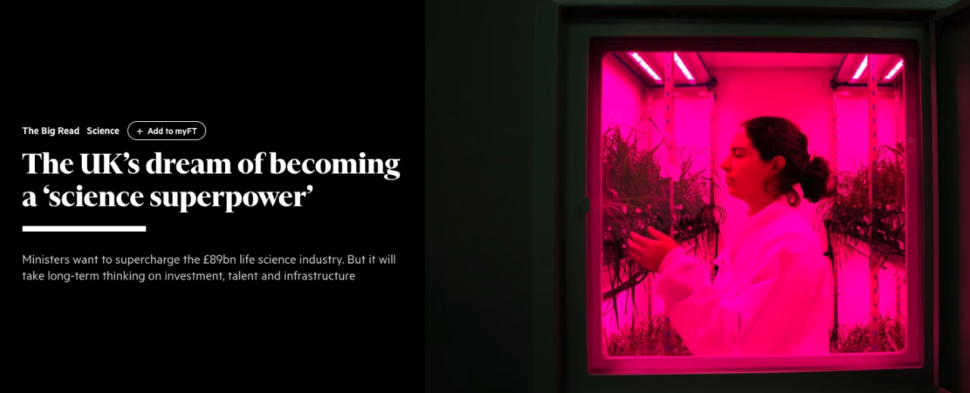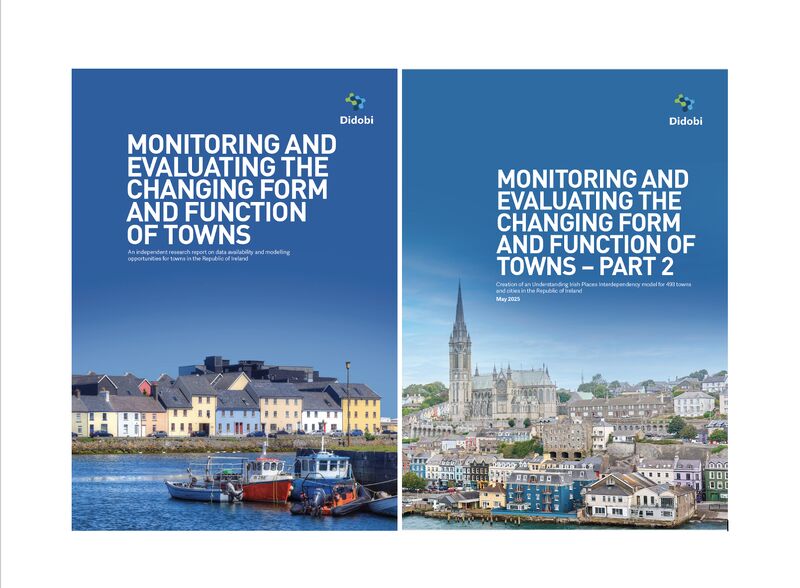
Does the UK have what it takes to be a global life sciences hub?
The Financial Times last week reported on the UK’s ambitious goal of becoming a “science superpower”. Hundreds of innovative life sciences and biotech enterprises are emerging from academia each year. Yet, questions remain if current infrastructure can live up to these lofty expectations. Will the necessary financial, regulatory and physical resources be provided for scientists in order for them to reach their full potential?
Sir John Bell, regius professor of medicine at Oxford university, is among those fretting that the UK is not doing enough to seize the opportunity. “We’ve got lots of spinouts, in EU terms, by far the most products under early development, the question is why we haven’t got a Boston or San Francisco-level cluster?” he is quoted as saying, referring to the US life science hubs.
Early-stage companies in the UK life sciences sector often face a difficult challenge – finding financial support for their risky ventures. As pension schemes from overseas are larger investors than what is offered domestically, many of these promising start-ups struggle to make it past the “valley of death” and become revenue generators before running out of cash. Fortunately, there have been cases where one success story has changed everything – just as Genentech did decades ago when they rose up in San Francisco with ground-breaking biotechnology advancements.
The scarcity of laboratory space is another pressing issue. This is an area where the private sector can make a real difference because physical infrastructure is essential and the real estate sector is showing great interest in this sector. According to the Emerging Trends in Real Estate Europe 2023 report, launched in November 2022 by the Urban Land Institute and PwC, the life sciences sector is ranked second in terms of its overall prospects for 2023. The availability of suitable buildings is important because whether the UK can produce a globally significant cluster of life science industries will depend upon assembling a critical mass of physical infrastructure alongside the necessary human and financial capital.
Investing in life sciences real estate is a powerful way to help the UK reach its full potential as an international superpower. Not only does this benefit growing and established businesses, but it also creates conditions ripe for new medical discoveries that can improve lives around the globe. At Didobi, our team of researchers helps investors pinpoint ideal locations outside London’s Golden Triangle throughout the country so they can expand their portfolios while having maximum impact on Britain’s growth trajectory. In 2022 VINCI DEVELOPMENTS UK entrusted us with providing detailed insight into local markets across the UK – allowing them to make highly informed decisions about where best to place their resources.
This commentary piece was written by Didobian, Stephen Ryan.





